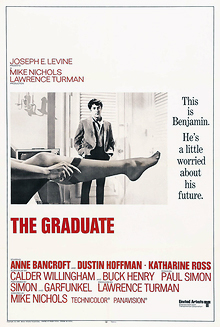 |
| Kirk Douglas and Adolphe Menjou in Paths of Glory |
Cpl. Philippe Paris: Ralph Meeker
Gen. George Broulard: Adolphe Menjou
Gen. Paul Mireau: George Macready
Lt. Roget: Wayne Morris
Maj. Saint-Auban: Richard Anderson
German Singer: Christiane Kubrick
Cafe Owner: Jerry Hausner
Chief Judge: Peter Capell
Father Dupree: Emile Meyer
Sgt. Boulanger: Bert Freed
Pvt. Lejeune: Kem Dibbs
Pvt. Maurice Ferol: Timothy Carey
Shell-Shocked Soldier: Fred Bell
Capt. Rousseau: John Stein
Capt. Nichols: Harold Benedict
Director: Stanley Kubrick
Screenplay: Stanley Kubrick, Calder Willingham, Jim Thompson
Based on a novel by Humphrey Cobb
Cinematography: Georg Krause
Art direction: Ludwig Reiber
Film editing: Eva Kroll
Music: Gerald Fried
Kirk Douglas gives an uncharacteristically restrained performance in Paths of Glory, but the real star of the film is director Stanley Kubrick, who gives the big battle scene a kind of choreographed intensity. Kubrick had begun his career as a photographer for Look magazine and had been his own cinematographer on his early short films and his features Fear and Desire (1953) and Killer's Kiss (1955). Although the cinematographer for Paths of Glory is Georg Krause, it's easy to sense Kubrick's direction as he anticipates the battle scene's relentless motion with long takes and tracking shots in the earlier parts of the film, when the camera observes Gen. Broulard persuading Gen. Mireau to commit his troops to the suicidal assault on the German-held "Ant Hill." We follow Broulard and Mireau as they move through the opulent French headquarters (actually the Schleissheim Palace in Bavaria), circling each other as Broulard plays on Mireau's ambition and overcomes his resistance, Then we move to the trenches, a sharp contrast in setting from the palace, where the camera tracks Mireau as he walks down the long narrow ditch, greeting soldiers in a stiff, formulaic way and berating one who is stupefied by shell shock as a coward. The tracking shot of Mireau's tour of the trenches is then repeated with Col. Dax in the moments before the suicidal assault on the Ant Hill, although this time the air is full of smoke and debris from the shelling. Then Dax goes over the top, blowing a shrill whistle to lead his troops, and we have long lateral tracks punctuated by explosions and falling men. Film editor Eva Kroll's work adds to the power of the sequence. If the acting and the screenplay (by Kubrick, Calder Willingham, and Jim Thompson) were as convincing as the camerawork, Paths of Glory might qualify as the masterpiece that some think it is. Douglas, Menjou, and Macready are fine, and Wayne Morris and Ralph Meeker have a good scene together as members of a scouting party on the night before the battle, in which the drunkenness and cowardice of Morris's character has fatal consequences. But the scenes in which the three soldiers court-martialed for the failure of the assault face the prospect of the firing squad go on much too long, and are marred by the overacting of Timothy Carey as the "socially undesirable" Private Ferol and the miscasting of Emile Meyer, who usually played heavies, as Father Dupree. (Carey was actually fired from the film, and a double was used for some scenes.) And the film ends with a mawkish and unconvincing scene in which a captured German girl (the director's wife-to-be, Christiane Kubrick) reduces the French troops to tears with a folk song. Paths of Glory has to be described as a flawed classic.
